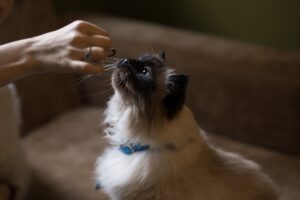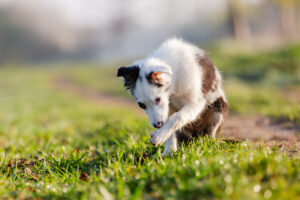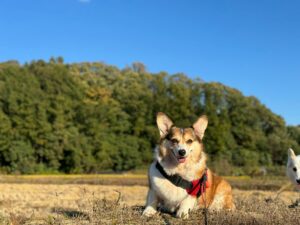If you’re a dog owner, you’ve probably witnessed your furry friend happily nibbling away at a patch of grass. This curious behavior is commonplace, but why do dogs do it? Is it a sign of a problem, or is it harmless? Let’s dive into the reasons behind grass-eating and address whether you should intervene.
Understanding the Reasons Why Dogs Eat Grass
Despite its prevalence, there’s no single, definitive explanation for why dogs indulge in this seemingly odd habit. Here are several likely reasons behind your dog’s grass-eating tendencies:
- Instinctual Behavior: Dogs’ wild ancestors likely consumed grass as part of their natural diet. This instinctive behavior may have carried over to domesticated dogs, even though they have balanced diets today.
- Nutritional Needs: Grass is a source of fiber, which is important for healthy digestion. If your dog’s diet lacks sufficient fiber, they may crave grass to compensate. Similarly, some experts suggest that dogs might eat grass to obtain trace nutrients that might be missing from their regular food.
- Upset Stomach: Many dogs turn to grass when they experience nausea or an unsettled stomach. Eating grass may trigger vomiting, which dogs sometimes do intentionally to relieve discomfort.
- Boredom or Attention-Seeking: If your dog feels bored or neglected, they might resort to eating grass as a way to pass the time or get your attention.
- Enjoyment: Some dogs genuinely enjoy the taste and texture of grass!
Should I Worry About My Dog Eating Grass?
In most cases, occasional grass-eating is completely normal and harmless. It’s incredibly common dog behavior. However, there are some circumstances where you might want to pay closer attention:
- Excessive Eating: If your dog obsessively grazes or consumes large quantities of grass, it could signal an underlying medical problem like gastrointestinal distress or a nutritional deficiency.
- Toxins: Ensure the grass your dog nibbles on is free from harmful pesticides, herbicides, or fertilizers.
- Intestinal Blockage: While rare, consuming large amounts of grass could lead to a blockage in the digestive tract, especially in small dog breeds.
When Should I Stop My Dog from Eating Grass?
It’s best to discourage your dog from eating grass if:
- The grass they’re eating is potentially treated with dangerous chemicals.
- They eat unusual quantities of grass or seem fixated on it.
- Grass-eating frequently leads to vomiting or other signs of distress.
How to Stop Your Dog from Eating Grass
Here are a few techniques to deter grass-eating:
- Diet Adjustments: Make sure your dog gets a high-quality, fiber-rich diet. Consider adding dog-safe vegetables like carrots or green beans to their meals for extra roughage.
- Prevent Boredom: Give your dog ample exercise, playtime, and mental stimulation. A busy and contented dog is less likely to resort to grass-eating out of boredom.
- Deterrents: If necessary, you can try spraying a taste deterrent formulated for dogs on grassy areas your pup frequents.
- Redirection: When you notice your dog starting to nibble on grass, distract them with a toy or an engaging game.
- Veterinarian Consultation: If your dog’s grass-eating is excessive or accompanied by other concerning symptoms, consult your veterinarian to rule out any underlying health issues.





